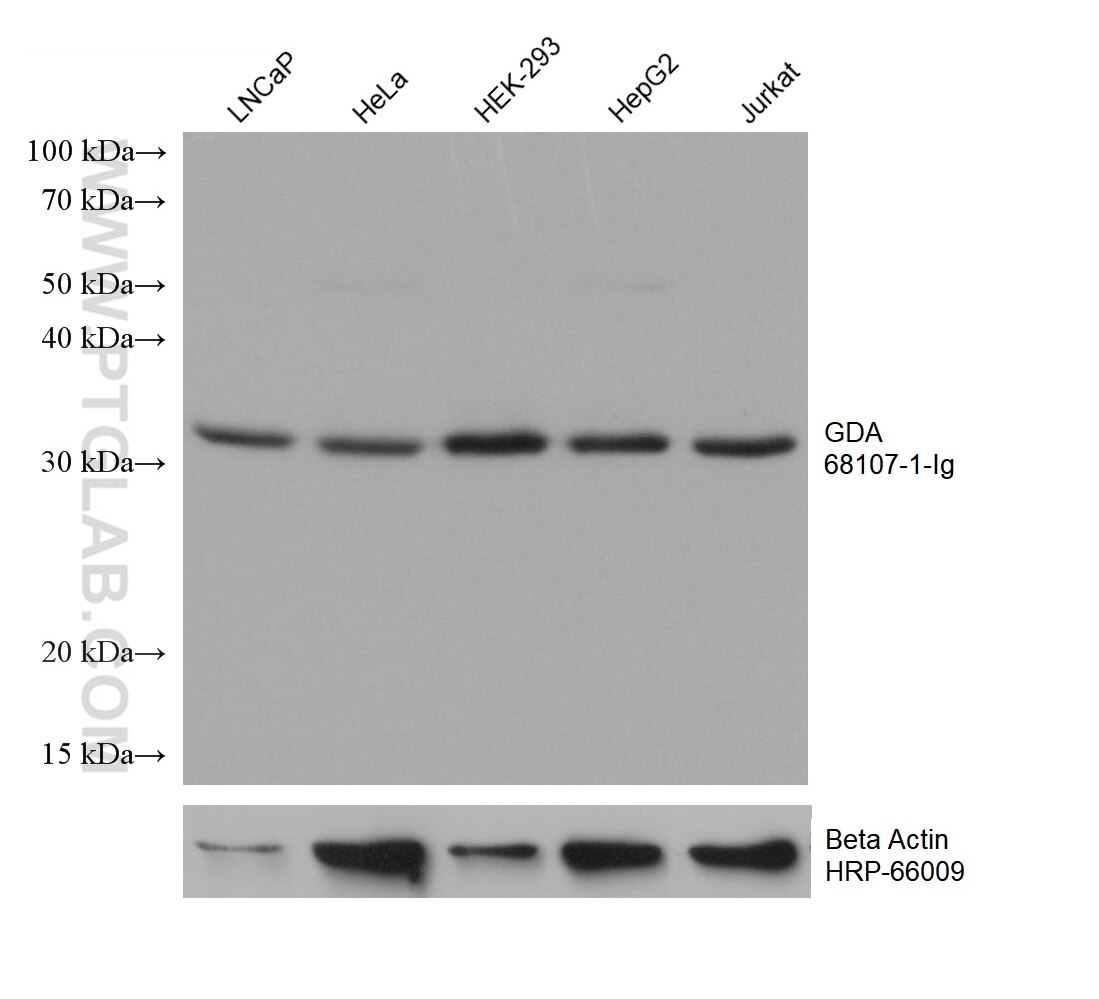Tested Applications
| Positive WB detected in | LNCaP cells, HeLa cells, HEK-293 cells, HepG2 cells, Jurkat cells |
Recommended dilution
| Application | Dilution |
|---|---|
| Western Blot (WB) | WB : 1:5000-1:50000 |
| It is recommended that this reagent should be titrated in each testing system to obtain optimal results. | |
| Sample-dependent, Check data in validation data gallery. | |
Product Information
68107-1-Ig targets SLC25A16 in WB, ELISA applications and shows reactivity with Human samples.
| Tested Reactivity | Human |
| Host / Isotype | Mouse / IgG1 |
| Class | Monoclonal |
| Type | Antibody |
| Immunogen | SLC25A16 fusion protein Ag4891 Predict reactive species |
| Full Name | solute carrier family 25 (mitochondrial carrier; Graves disease autoantigen), member 16 |
| Calculated Molecular Weight | 36 kDa |
| Observed Molecular Weight | 33 kDa |
| GenBank Accession Number | BC030266 |
| Gene Symbol | GDA |
| Gene ID (NCBI) | 8034 |
| RRID | AB_2923636 |
| Conjugate | Unconjugated |
| Form | Liquid |
| Purification Method | Protein G purification |
| UNIPROT ID | P16260 |
| Storage Buffer | PBS with 0.02% sodium azide and 50% glycerol , pH 7.3 |
| Storage Conditions | Store at -20°C. Stable for one year after shipment. Aliquoting is unnecessary for -20oC storage. 20ul sizes contain 0.1% BSA. |
Background Information
GDA, also named as SLC25A16, GDC, ML7, hML7, belongs to the mitochondrial carrier family. GDA encodes a protein that contains three tandemly repeated mitochondrial carrier protein domains. The encoded protein is localized in the mitochondrion inner membrane and facilitates the rapid transport and exchange of molecules between the cytosol and the mitochondrial matrix space. This gene has been associated with Graves' disease (PMID:11158296, 1457817).
Protocols
| Product Specific Protocols | |
|---|---|
| WB protocol for SLC25A16 antibody 68107-1-Ig | Download protocol |
| Standard Protocols | |
|---|---|
| Click here to view our Standard Protocols |



